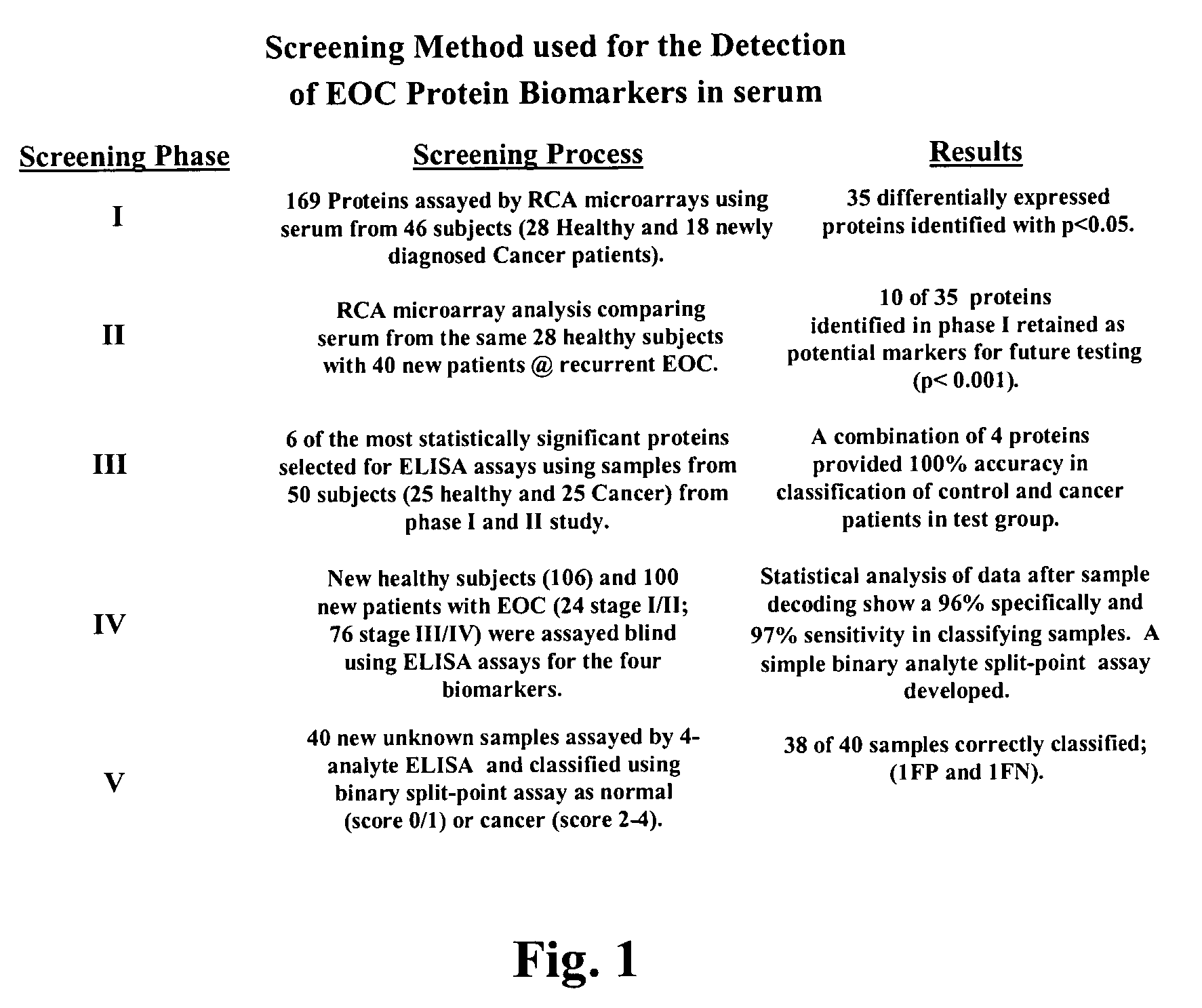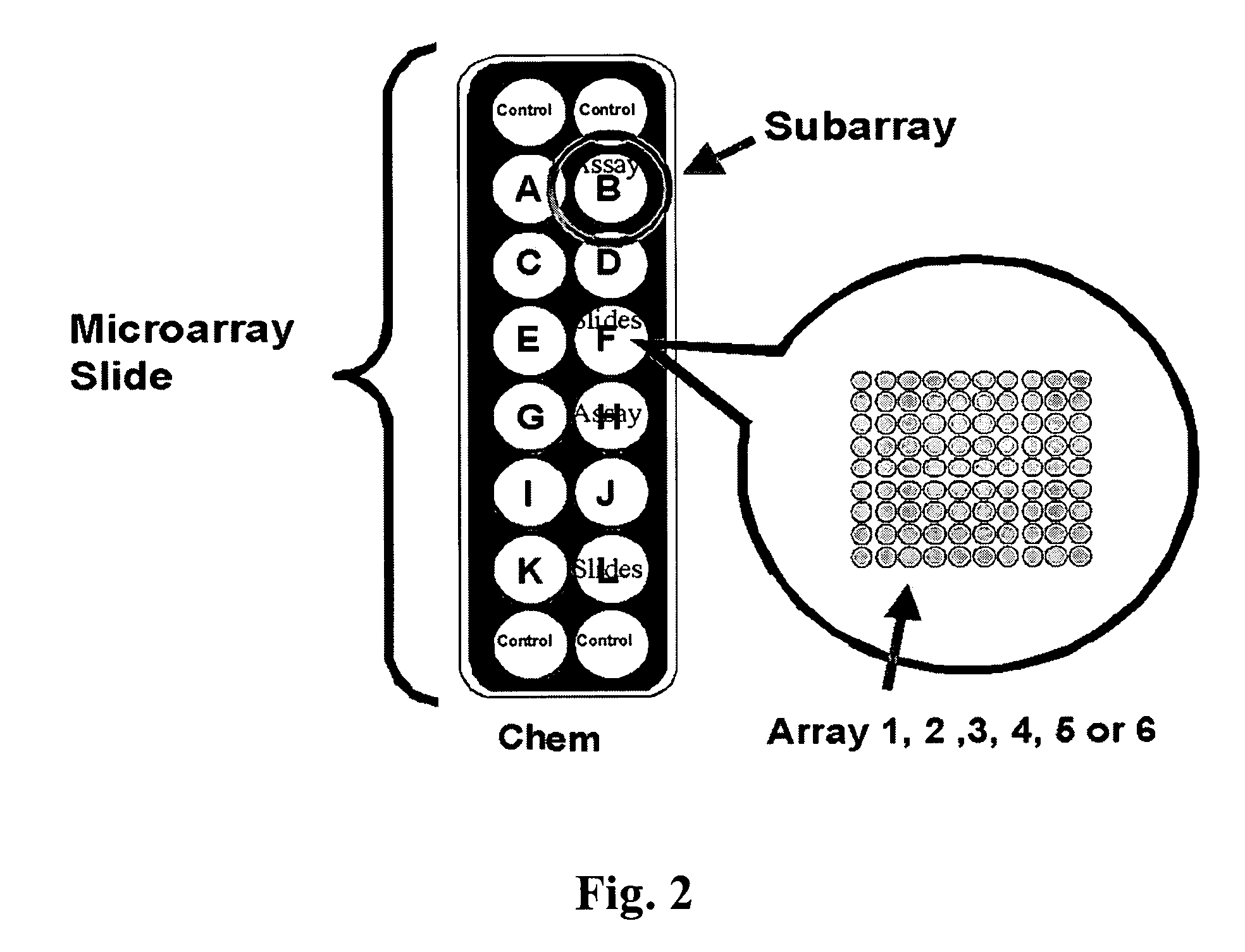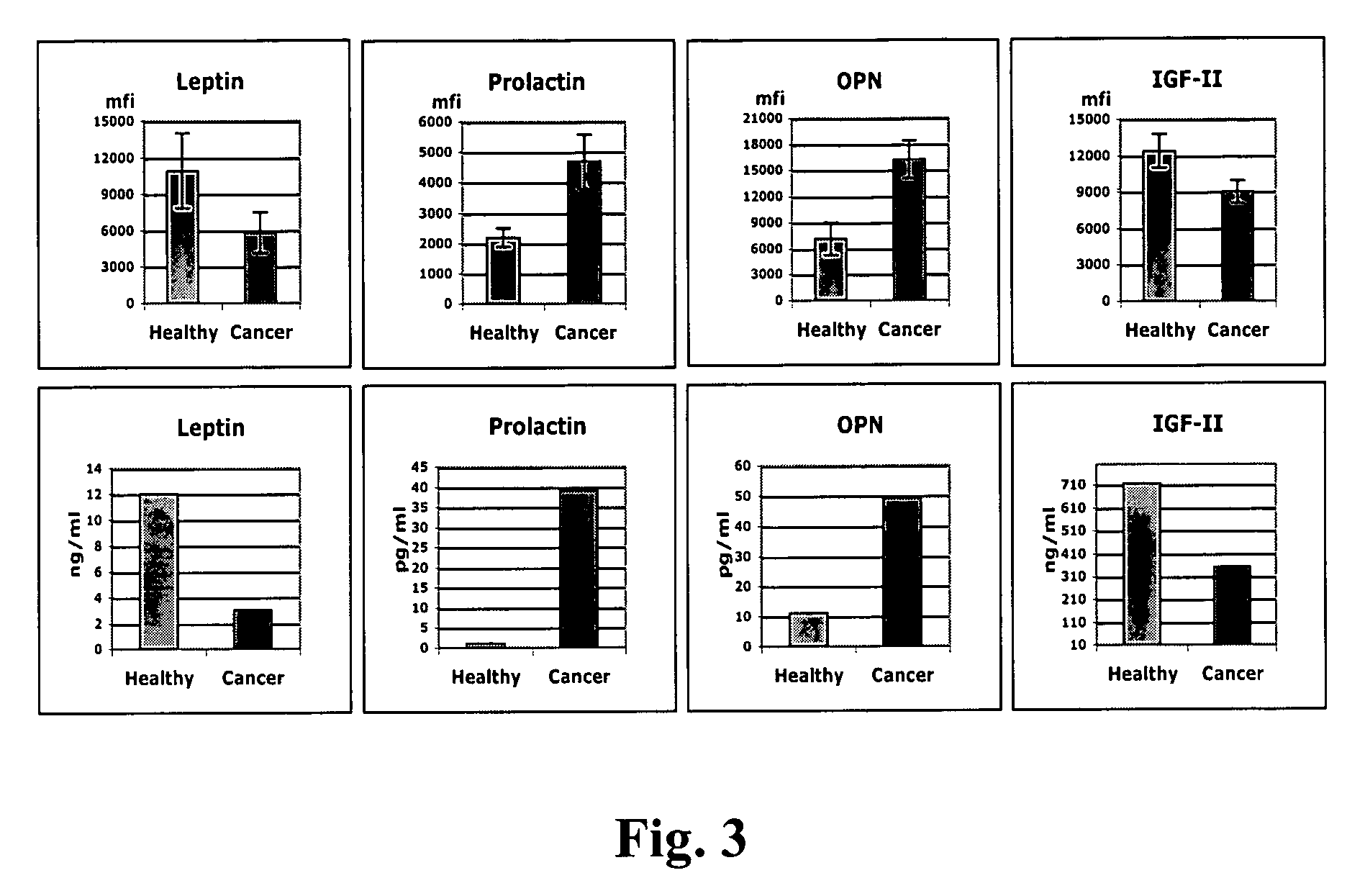Identification of cancer protein biomarkers using proteomic techniques
a cancer protein and proteomic technology, applied in the field of identifying cancer protein biomarkers using proteomic techniques, can solve the problems of poor survival, lack of early detection of tumor markers, and treatment of ovarian cancer
- Summary
- Abstract
- Description
- Claims
- Application Information
AI Technical Summary
Benefits of technology
Problems solved by technology
Method used
Image
Examples
example 1
Materials and Methods Used in Example 1
[0145]Microarray Manufacture: Microarrays were prepared according to Schweitzer et al., Nat Biotech (2002) 20:359. In short, glass slides were cleaned and derivatized with 3-cyanopropyltriethoxysilane. The slides were equipped with a Teflon mask, which divided the slide into sixteen 0.65 cm diameter wells or circular analysis sites called subarrays (FIG. 2). Printing was performed with a Perkin-Elmer SpotArray Enterprise non-contact arrayer equipped with piezoelectric tips, which dispense a droplet (˜350 pL) for each microarray spot. Antibodies were applied at a concentration of 0.5 mg / mL at defined positions. Each chip was printed with sixteen copies of one type of array, either array 1, 2, 3, 4, 5 or 6. (See Table 1.) A set of antibodies was printed with quadruplicate spots in each subarray. After printing, chips were inspected using light microscopy. If the percentage of missing spots observed was greater than 5%, then the batch failed and t...
example 2
The Used of the Biomarkers Identified in Ovarian Cancer Patients to Diagnose Breast Cancer and Colon Cancer
[0159]Certain samples were analyzed to determined whether the biomarkers identified above (leptin, prolactin, OPN and IGF-II) were differentially expressed in other types of cancer. The results, shown in Table 9, indicate that the biomarkers identified above can be used to diagnose other types of cancer including breast cancer and colon cancer.
[0160]As shown in Table 10, samples corresponding to subjects with cancer could be distinguished from samples from healthy subjects by the differential expression of two or more biomarkers as compared to their predetermined standard. In Table 10, the expression levels indicated in italics and bold corresponds to expression levels outside of the predetermined standard for said biomarker.
[0161]
TABLE 10Analysis of the expression of leptin, prolactin, OPN andIGF-II in breast cancer and colon cancer.PatientLeptinProlactinOPNIGF-IICodeSample De...
PUM
| Property | Measurement | Unit |
|---|---|---|
| diameter | aaaaa | aaaaa |
| concentration | aaaaa | aaaaa |
| concentrations | aaaaa | aaaaa |
Abstract
Description
Claims
Application Information
 Login to View More
Login to View More - R&D
- Intellectual Property
- Life Sciences
- Materials
- Tech Scout
- Unparalleled Data Quality
- Higher Quality Content
- 60% Fewer Hallucinations
Browse by: Latest US Patents, China's latest patents, Technical Efficacy Thesaurus, Application Domain, Technology Topic, Popular Technical Reports.
© 2025 PatSnap. All rights reserved.Legal|Privacy policy|Modern Slavery Act Transparency Statement|Sitemap|About US| Contact US: help@patsnap.com



